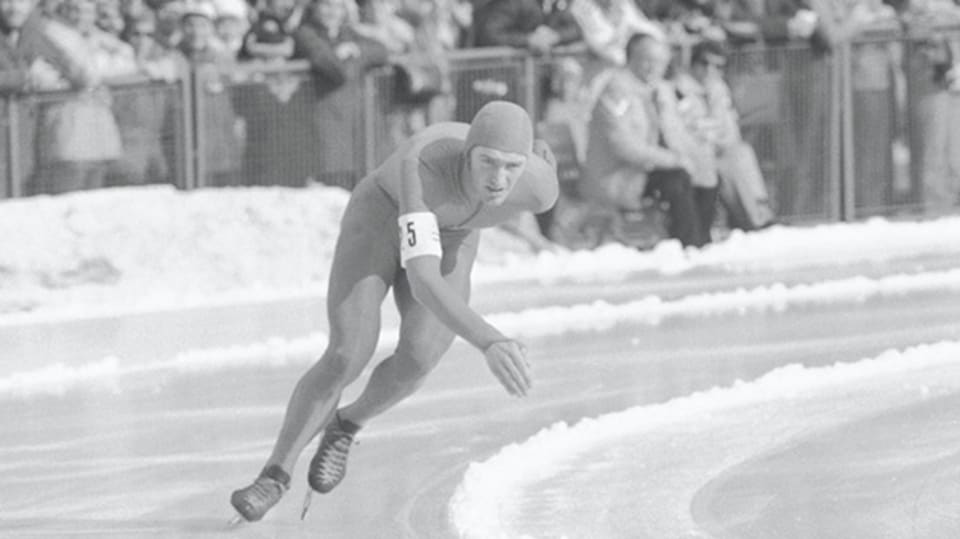
The unemployed carpenter’s amazing performance signalled the emergence of a major new talent in speed skating – and even landed him a full-time job.
Kleine, a gangly 6ft 5in, pipped world record holder Sten Stensen and collected a shock gold in the 10km. He even set an Olympic record, despite the race being blighted by poor conditions and limited visibility, which can be problematic when racing around an ice track at 40kmh.
Although a talented cyclist, Kleine’s sporting breakthrough came when he switched his focus to the ice. After a breakthrough bronze at the 1973 World All-round Championships, his annus mirabilis came in 1976.
As the Olympic competition got under way in Innsbruck, all was going to plan for 28-year-old Stensen, a lieutenant in the Norwegian Army.
Although a snowstorm came on as the 5k race got under way, he managed to hold off Kleine, who took silver, and his countryman Hans van Helden, to pick up his first gold medal in the 5,000m, with a time of 7:24.48.
Stensen – a distance specialist – was well placed to pull-off a double win at The Olympia Eisschnelllaufbahn. Like the 5k contest three days before, the gruelling 10k competition began in poor conditions. However, though the weather was the same, the outcome was to be very different.
Van Helden, who had already won another bronze in the 1,500m and 5k, finished in 15:02.02. Stensen raced two pairs later and pipped the Dutchman’s time by a good nine seconds. Then came Kleine.
After a steady start he fell behind Stensen in the first 12 laps. But in the final 13 he began to speed up – catching and then gradually pulling away from the Norwegian veteran.
To general amazement in Innsbruck, Kleine won gold with an Olympic record time of 14:50.59 – the second fastest performance ever, and just 0.28 off Stensen’s world-beating time.
As well as the joy of Olympic triumph, Kleine’s efforts were to have unexpected consequences. In a post-race interview he mentioned that he was out of work.
Dutch minister Harry van Doorn got wind of the problem and found Kleine a job as a postman – who was presumably quite speedy on his rounds.
A few weeks later, Holland’s new speed skating star won the 1976 World Championships, taking first place in the 1,500m and 10k races, before going on to break world records in the 5k and 10k events at a meet in Inzell, West Germany.
He closed out the season by setting four world records in one week and was named Dutch Male Athlete of the Year.
Kleine was a flagbearer for the Netherlands in Lake Placid in 1980, and left with a silver medal in the 10k. He ended his career as a speed skater in 1981 and picked up where he had left off, resuming a successful career in amateur cycling.
In 1985, as a member of the Dutch national team, he finished 5th at the World Championships in the 100km team time trial.
After a spell as a marathon skater, Kleine retired in 2001 – and carried on working as a postman.
